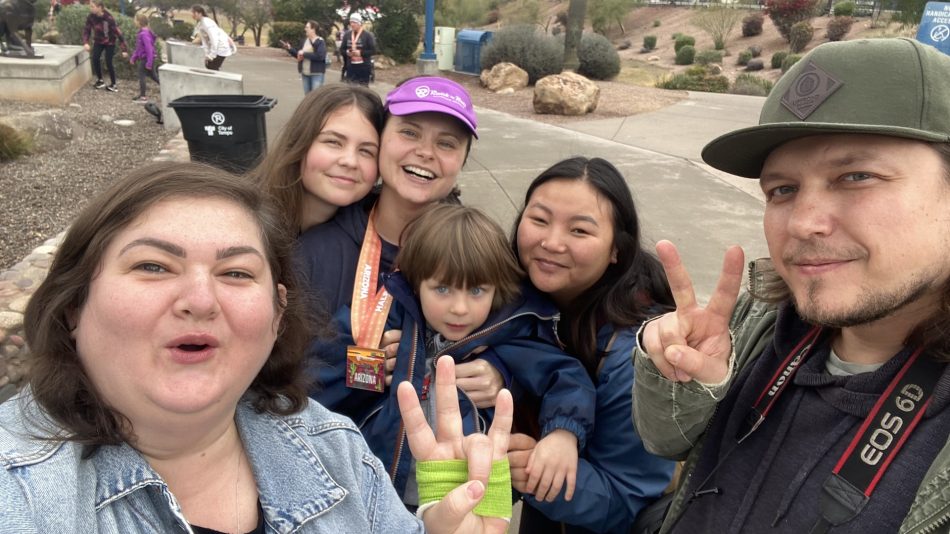I never understood those ecstatic people, frantically smiling for the camera while voluntarily subjecting themselves to the torture of long-distance runs. Until I became one, it has been the best investment in my professional development so far.
The longest distance I had ever run was a mile. In the school competition. Twenty years ago. I am a person who prefers minimal effort, quick results, and solitude. Or so I thought.
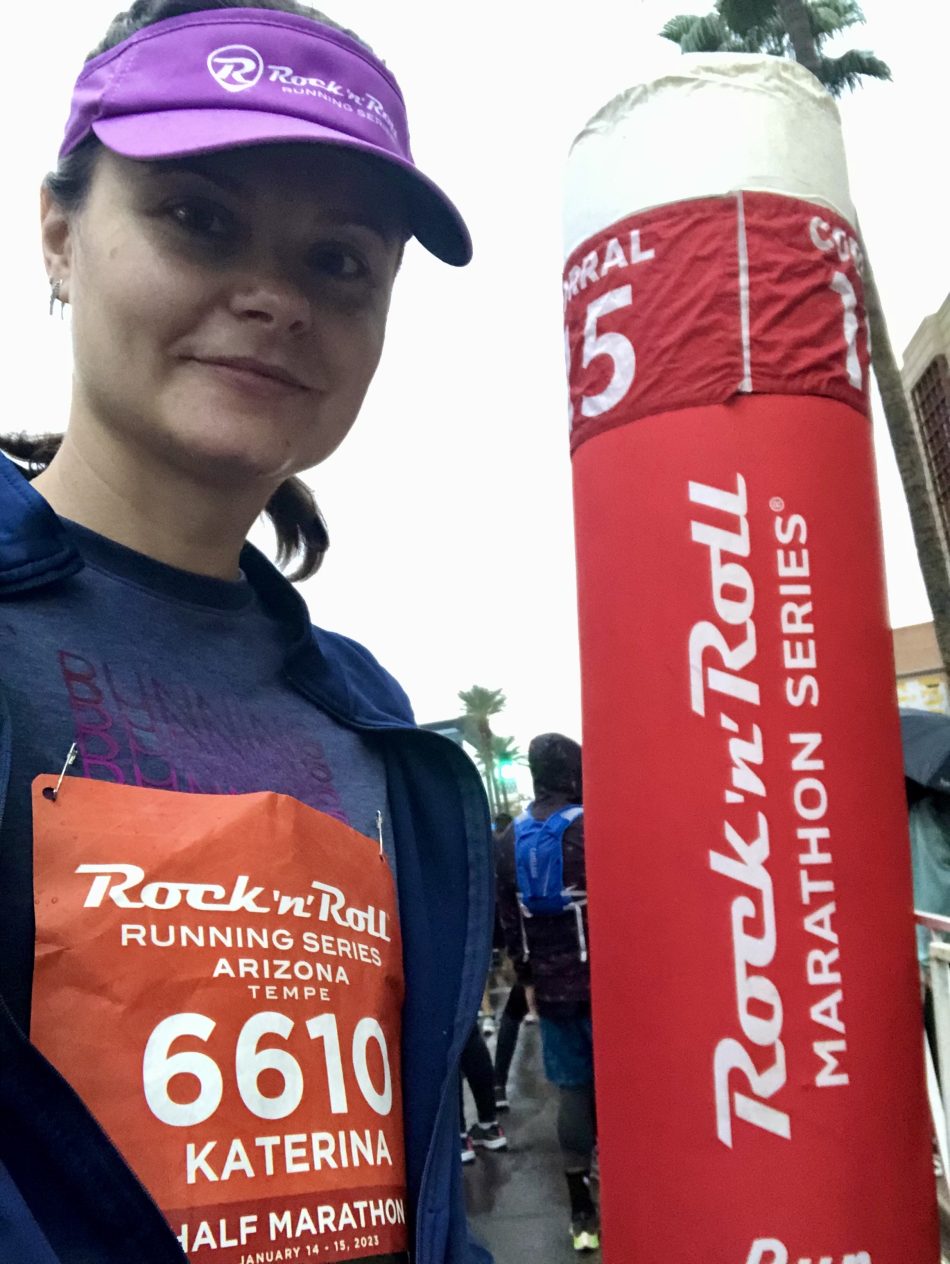
As I reach an age where the unhealthy habits of my youth are starting to kick in, I feel envious of those who manage to stay active and fit. So when Humphrey Fellowship program curator John Misner mentioned that he’s been running marathons for decades, it got me thinking. Our stipends are tight, the Arizona burgers are fat, and roads are free. It was early September when I signed up for January Rock ‘n’ Roll half-marathon distance (13.1 miles).
Two weeks later, I regretted that decision. I showed up for a 3.5-mile group run organized by the Downtown Phoenix Run club. I was able to keep up with all these beautiful, strong young students for the first half mile. Then I lost it. When the route passed my home, I was ready to give up. I started looking for ways to sneak out quietly to keep my dignity. But it turned out to be impossible. If I wanted to quit, I would have to do it in front of the group. However, my pride did not allow me to be considered a loser.
I continued to run for a couple of minutes until it became completely unbearable. I didn’t mind ruining my reputation anymore. But one of the coordinators who stayed behind to help those struggling apparently decided I was a lost cause and gave me a certain look. A look of pity. Although pity was exactly what my pathetic, sweating, nearly breathless figure deserved, it made me very angry. And that anger kept me going.
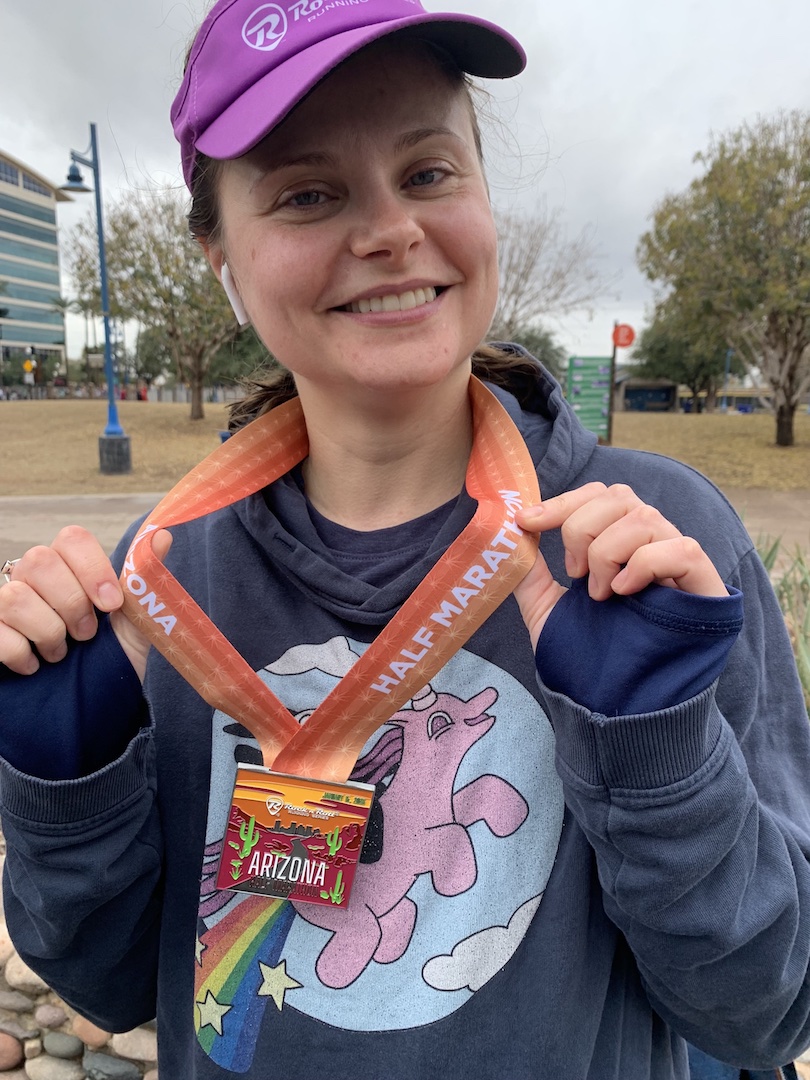
At some point, I realized that the finish line was closer than my home. I arrived last, having walked at least half of the distance. But I did it. Not because I was fit but because I was angry, vain, and stubborn. I was bitterly disappointed with my speed, but it actually felt liberating. Instead of dreaming of grandiose achievements, from now on, I focused only on making some progress.
On the way to the race that morning six months later in January, I chuckled at my original plans. Exercising five times a week? I could only manage five times a month with school assignments and family responsibilities. Steady progress? How about getting Covid-19 and missing a month at the gym altogether? I had thought of giving up so many times, but the fear of losing the $129 I had paid to join the run kept me going.
That morning I had only one desire – to finish the race in one piece. I felt all sorts of emotions rise: fear, competitiveness, self-pity. Every time these feelings would come over me, I would speed up, get out of breath, and eventually slow down.
I will forever be grateful to all the runners around me who helped me get back on track. Oh, you should have seen all these inspiring people – parents with toddlers in strollers, people with weights in their hands, people dressed in Elvis costumes, people carrying the flags of their countries. One guy even juggled while running!
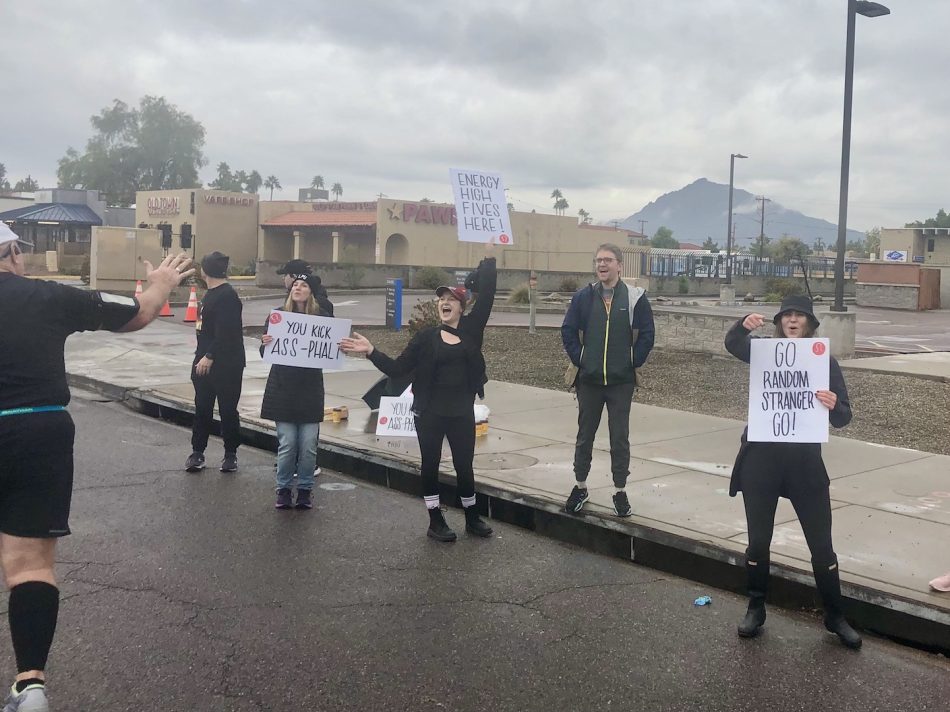
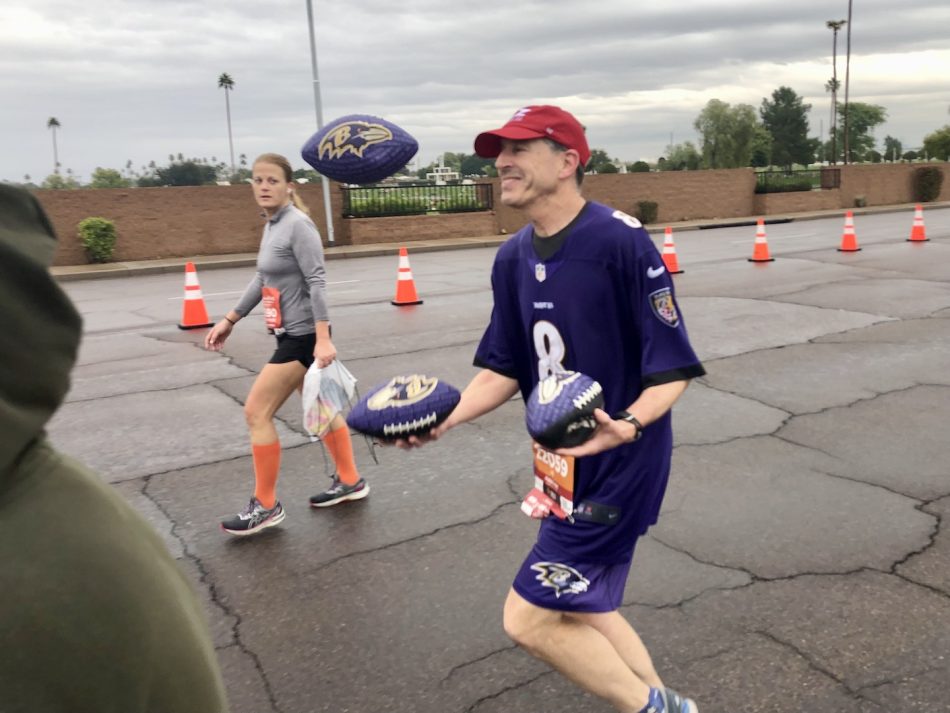
All these people taught me something. We were not racing each other. We all ran together. Together to reach our own goals. Together to beat the distance to the best of our abilities.
Before that race, I would never enter anything that didn’t promise me a winning spot. Running helped me see that there is no winning spot in life – only individual efforts to cover the distance. And it’s not just positive emotions that keep you going. Sometimes anger, shallowness, envy, and greed can help you find the strength to go the extra mile. Sometimes they stand in your way. And that’s ok, too; we are just figuring out how to make it.
